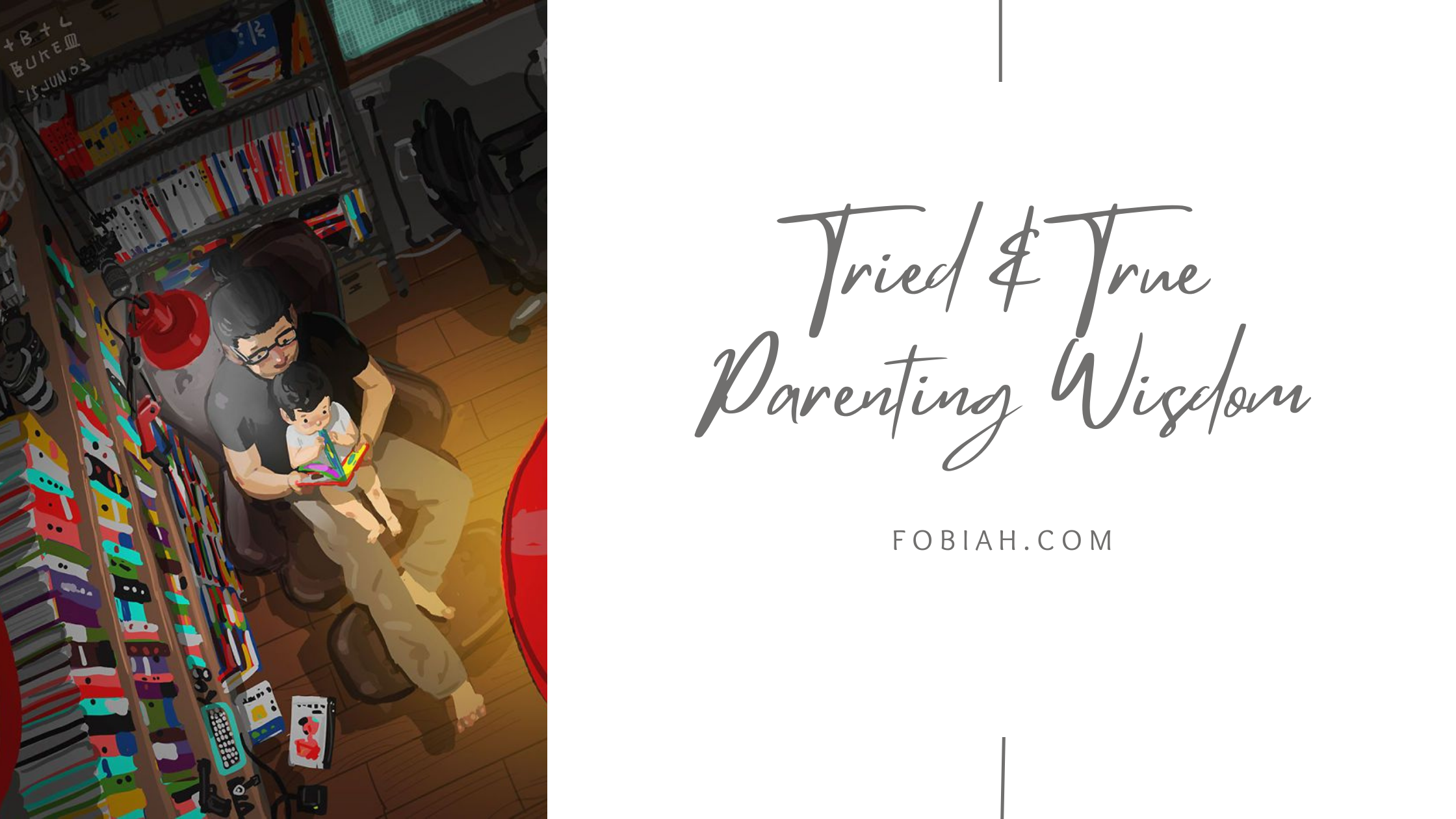From a seed to a grown baby – the nine months not only change your life forever, but also defines your life’s purpose and helps you prepare for your biggest role yet – you becoming a ‘parent’. While you might work towards setting up a platform to give your kids a good start to life, it is of utmost importance to protect, guide, and foster them.
Parenting as a process for the first few months might seem like an impossible feat, but to help ease the transition, we offer you the best parenting tips and tell you everything you need to know on ‘how to become a good parent’.
But What is Parenting?
The significance of parents raising their kids and offering them love, support, and care for healthy development has posed several implications. The prime assumption being that parents are the biggest influence in a child’s life and they are the ones who mold their belief system. So, if the child turned out great, the credit goes to the parents’, if not, the parents are at fault if the child turned out to be a sour apple. Studies have shown that peer relationships, exposure to media, and other external factors exert a stronger influence. So let society define good parenting for you. Just walk the talk and become the person you want your kid to be.
Should I be a Disciplinarian or an Indulgent Parent?
Parenting style affects the child’s confidence, health, and overall wellbeing. So picking a universal style won’t cut it, one needs to choose a style that is best suited to your child’s needs. We break down the three most effective styles, along with their pro’s and con’s and share a few parenting tips.
Disciplinarian or Authoritative
‘Because I say so’ or ‘My house, my rules’ are a few statements that pull yourstrings, then you are likely to follow an authoritative parenting style.
Pro’s: Traits like obedience, problem-solving and better life choices are inbuilt in them at an earlier stage
Con’s: Kids may be at a higher risk of becoming too aggressive or hostile, and may also have low self-esteem
Indulgent or Permissive
This parenting style is where one thinks of their kids as friends. They step in only if there is a serious requirement.
Pro’s: Kids are often more open/vocal, warm, and nurturing
Con’s: Since the discipline style is completely opposite, kids may exhibit behavioural problems, are likely to struggle academically, and also face health problems
Uninvolved
Parents following this style of upbringing like to offer full freedom and stay out of their child’s way of life. They make a conscious decision to be involved to let their kids build their own identity.
Pro’s: Kids learn self-reliance, make informed decisions at a very early age and have few or no expectations
Con’s: Kids feel neglected and may resort to substance abuse as a distraction.
Few Healthy Parenting Tips
Good parenting not only inculcates good behaviour amongst kids but also promotes self-control, intellectual curiosity, and motivation. We give you are a few healthy parenting tips that are likely to be super rewarding.
- Set limited boundaries – It is important to give your kids freedom and independence, but set limitations so they can explore opportunities within a safe environment
- Discipline and not punish – There is a very fine line between enforcing things to behave a certain way and helping them grow into a better human being. Learn to be compassionate even during difficult times
- Be assertive – Choose to let go of certain choices but be assertive towards meaningful battles like ‘no hitting’, ‘no lying’ or, ‘no talking back’,’ etc.
- Bond together – Indulge in a little playtime or read a book or just hang out with your children without any interruptions to build a strong bond. This will not only open room for communication but also build trust that is extremely important
- Apologies – Parents are human beings too and are likely to make mistakes. So face up and apologies to set an example
- Stay truthful – aren’t you expecting the same from your kid? Why not become their role model?
- Be affectionate – Studies prove that physical affection increases brain development. It also makes them less anxious; they are merrier and most importantly, it builds a strong emotional bond
However, as a rule of thumb, some tips might not work their charm on certain age groups. Physical affection to a teenager might be embarrassing and setting boundaries for a toddler is a no-no! So we further break down the phases and share a few more in-depth parenting tips.
Preschooler Parents
They are eager learners, so do not be surprised if they want to pick out their own clothes, or begin to ask many ‘why’ questions. The best way to nurture them is to let them grow and become independent. Set expectations to pick up their own toys, let them do things on their own, do not redo what they’ve done, and praise them; it gets their attention and they are likely to do better when given attention. Setting a daily routine and relying on distractions to discipline will prevent melt-downs.
Teenager Parenting Tips
Your talkative daughter may just communicate in holophrasis. ‘Yes’, ‘No’,’ and ‘Okay’ become their favourite words, and they might not be willing to share details anymore. The emotional separation allows them to become well-adjusted adults; however, it is pivotal for parents to acknowledge their attention. Respect their feelings and try to listen, set rules and consequences instead of giving ultimatums, and be fixable and reasonable towards their choices and decisions. Opt to monitor their lifestyle without invading their privacy.
Parenting Adult Children
You might breathe a sigh of relief that the rebellious teenager phase is now over, but navigating a strong relationship with an adult child is a mammoth task. But when do you your advice? When to keep quiet? When should we offer complete independence? Here’s what you can do:
- Offer advice without being critical of their choices – communicate in a way they understand to build empathy
- Agree to disagree – Conflicts are not likely to disappear overnight, hence, instead of clashing, learn to accept and agree to their decisions
- Set boundaries, even if they’ve flown the coop – You may or may not be their 3 am friend, but having timely intimate discussions builds a stronger bond
- Share the burden – they may not need a sticker chart, but ensure you set expectations towards their contribution. Be it household chores, home expenses or medical reimbursement, they should take up responsibilities
While you work hard to build their future, don’t forget to live yours! Learn to build a close bond with them so it isn’t just about setting their life but also living yours.
Conclusion
In conclusion, the journey of parenting is both transformative and fulfilling, characterized by the constant evolution of our roles and relationships with our children. As we navigate the complexities of nurturing and guiding our children through various stages of life, it becomes evident that there is no one-size-fits-all approach to parenting. Instead, it is about adapting and embracing a style that resonates with the unique needs of each child.
The essence of effective parenting lies in striking a delicate balance between authority and empathy, discipline and compassion. It involves setting clear boundaries while fostering independence and self-reliance. It requires us to be present, attentive, and willing to learn alongside our children.
Ultimately, parenting is a profound journey of growth, mutual respect, and unconditional love. It’s about not just shaping our children’s future but also cherishing the present moments we share together. By embracing these principles and adapting to the unique needs of each phase, we can foster strong bonds that endure the test of time, creating a legacy of love and understanding that transcends generations.





